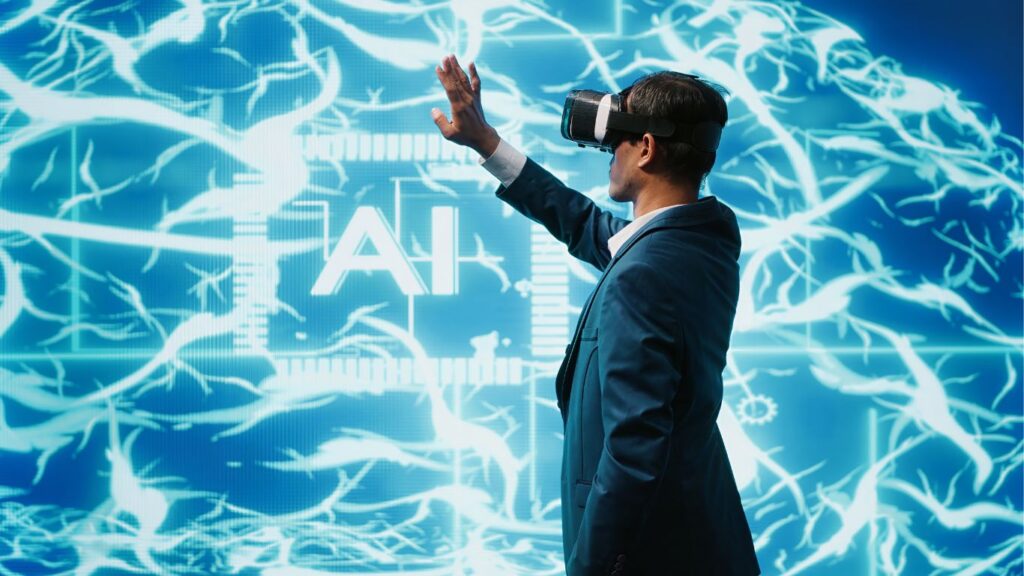Artificial intelligence (AI) has always intrigued me with its potential to revolutionize our world. From making everyday tasks more efficient to solving complex problems, AI offers endless possibilities that excite both my curiosity and my ambition.
Evolution of AI Technology

My fascination with AI began during a university project where I had to design a chatbot for educational purposes. Teaching a machine to understand and respond to human language was not just challenging—it was captivating. This experience solidified my career path and ignited a deep interest in the evolving landscape of AI technology. It’s fascinating to see how AI has grown from simple algorithms to complex models that can mimic human intelligence.
Real-World Applications
AI is already making significant strides across various industries:
- Customer Service: AI-driven chatbots and virtual assistants are transforming customer service by providing instant support and freeing up human agents for more complex tasks.
- Healthcare: AI enhances diagnostics, personalizes treatment plans, and improves patient care by predicting health outcomes and identifying disease patterns early.
- Education: AI offers personalized tutoring and adapts to individual student needs, making education more accessible to remote and underserved communities.
- Finance: AI models can predict fraudulent activities, saving financial institutions millions and restoring customer trust.
- Agriculture: AI helps farmers make informed decisions on irrigation, fertilization, and pest control, resulting in higher yields and reduced environmental impact.
Impact on Society
AI’s influence on society can be both positive and challenging. On the one hand, it can make daily tasks more efficient, improve healthcare outcomes, and create a more equitable world by reducing human bias in areas like hiring and lending. On the other hand, the misuse of AI can lead to job displacement, privacy concerns, and increased socioeconomic inequalities. This duality underscores the importance of responsible and transparent AI development.
Future Possibilities
The future of AI holds immense promise:
- Integration into Daily Life: AI will become increasingly integrated into everyday life, from personalized digital assistants to smart home devices.
- Advancements in Healthcare: AI will lead to more accurate diagnostics, customized treatment plans, and advancements in drug discovery.
- Workforce Transformation: AI will automate routine tasks and create new job opportunities in fields like data analysis and AI development.
- Ethical Considerations: There will be a greater focus on ensuring transparency, accountability, and the protection of privacy rights.
- Global Challenges: AI will play a crucial role in addressing global challenges like climate change by enabling more efficient energy usage and optimizing supply chains.
Personal Connection

My personal experiences with AI have shown me its incredible potential. For instance, developing an AI model to predict student performance and witnessing its impact on student retention rates was eye-opening. Similarly, creating a chatbot for a non-profit organization that improved user experience and freed up staff time was deeply rewarding. These experiences have fueled my passion for exploring AI further and advocating for its ethical and responsible use.
FAQs
What is Artificial Intelligence (AI)?
Artificial Intelligence (AI) refers to computer systems or machines that mimic human intelligence to perform tasks and can iteratively improve themselves based on the information they collect. These capabilities range from simple functions like recognizing patterns to more complex tasks such as language understanding, problem-solving, and decision-making.
How Does AI Learn?
AI typically learns through a process called “machine learning,” which involves training algorithms on large sets of data. These algorithms identify patterns and make predictions based on the input data. Over time, with exposure to more data, the algorithms can improve their accuracy and efficiency.
What Are Some Common Applications of AI?
AI is integrated into various sectors, including:
- Customer Service: Virtual assistants and chatbots.
- Healthcare: Diagnostic tools and personalized treatment plans.
- Education: Adaptive learning platforms and customized tutoring.
- Finance: Fraud detection and risk analysis.
- Agriculture: Precision farming and crop monitoring.

What Are the Ethical Concerns Surrounding AI?
Key ethical concerns in AI include privacy invasion, algorithmic bias, job displacement, and transparency in decision-making processes. Ensuring ethical standards in AI development is crucial to mitigating these concerns and promoting trust in AI technologies.
What Does the Future Hold for AI?
The future of AI encompasses greater integration into daily life, profound advancements in healthcare, transformation of the workforce, and significant contributions to solving global issues like climate change. Ethical considerations and responsible AI development will remain pivotal as the technology evolves.
How Can I Get Involved in AI?
There are multiple ways to get involved in AI:
- Education: Pursue courses and degrees in computer science, data science, or AI.
- Online Resources: Utilize free online courses, webinars, and tutorials.
- Practical Experience: Engage in projects, internships, or research opportunities in AI.
- Community Involvement: Join AI communities, forums, and conferences to network and stay updated on the latest developments.
Conclusion
The world of AI is vast and filled with opportunities. Whether it’s enhancing productivity, improving decision-making processes, or addressing global challenges, AI has the potential to transform industries and society. My journey with AI has been nothing short of thrilling, and I am excited to continue exploring its possibilities, contributing to its development, and advocating for its responsible use.











